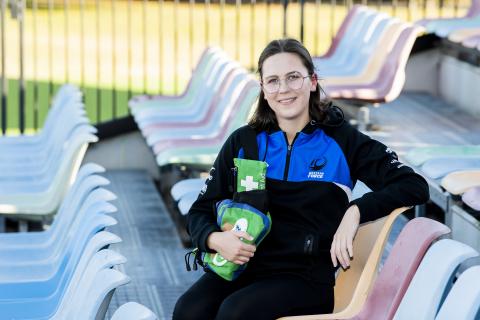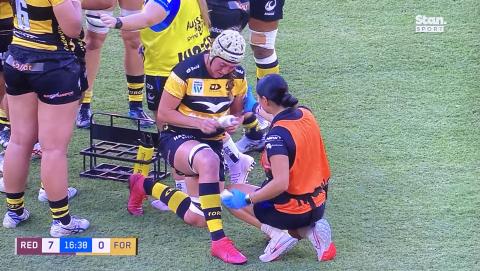
It’s team selection day and a couple of key players are 50-50 to prove their fitness for the upcoming match.
Meanwhile another handful are in the rehab group, following a carefully mapped out training and treatment regime that will enable them to get back on the paddock at the earliest possible time.
Then the coach changes the training program on the fly, sending the physiotherapists into a scramble. Decisions have to be made in an instant and information delivered clearly and concisely to coaches and players.
The towering lock has to sit this drill out. We don’t want the halfback running at greater than 80 percent capacity. Three of the forwards will need an extra drill at the end of the session.
And someone is going to be ruled out for that Saturday’s key match which means a tough discussion with the senior coach and the player.
It’s an emotion-charged moving feast that funnels through a physio whose decisions and communication can have a major bearing on not only team success, but also harmony.
You can’t learn that in a classroom.
Bond University is filling that gap with student placements in elite sporting environments, arranged by the Head of Physiotherapy Dr Wayne Hing and Director of Sport Michael Collins.
Jasmine Pearce Higgins and Victoria Lohman spent five weeks at Super Rugby franchise the Western Force while Nicholas Ragg was embedded across the ditch with the Wellington Hurricanes.

Pearce Higgins has gained valuable experience in her five years working with the Bond Rugby Club, but the intensity of full-time professional sport still took her by surprise.
“I don't think I'd factored in just how demanding training was going to be from like the medical standpoint,” she said.
“And just how everything was so fluid - you had to be aware of everything that was going on even though it was constantly changing.
“I don't think I was anticipating that. There's certain skills that you just can't learn in a classroom.’’
Professional sport does a superb job of presenting a glamourous façade but the reality is logistics, time and even simple things like space can add layers of complications a private practice don’t face.
Imagine the team is on the road on a ten-day tour of New Zealand. There’s no room at the hotel so the tables are cleared at the dining room to set up treatment benches. A steady stream of players file in to have a myriad of injuries worked on. It all has to be done around team meetings, training, meals and travel.
The amount of time players spend on buses and planes alone, dead time for physios, would amaze most fans.
Then there’s the range of emotions. Some are playing well, others aren’t. Some are reserves just waiting for a chance. Most are missing their families.
“I think it was such a valuable experience being in an elite sporting environment. Obviously a lot of us as physios want to work in sport, that's what attracts us to the profession,” Pearce Higgins said.
“Getting to see the other side of it was really eye opening.
“Everyone thinks that sport is really glamorous, and that's not always the case.
“You've definitely got the highs and lows, working with players and managing the personalities, especially in such a large group.
“I was truly on my own, which was nice to learn a bit about just managing my own stress levels, especially being in such a high-pressure environment when there were days when everyone's stress levels were through the roof.”
Western Force head physiotherapist Kurt Harrington said the club looked forward to welcoming more students next season.
“They were good, they were very handy to have in and they were experienced in rugby too which helps," he said.
“I think it was an enjoyable experience for both of them, we certainly got great feedback and we’d be looking to do something similar again next season as we always need help.’’